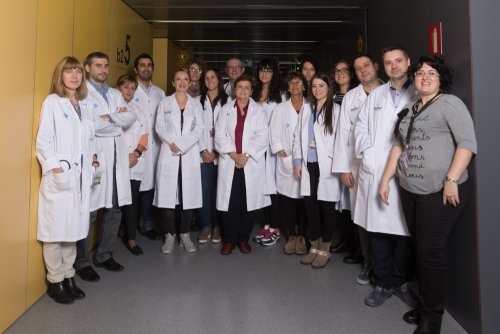Identify biomarkers that increase cardiovascular risk in patients with chronic kidney disease
Thursday, 8 March 2018 is the World Kidney Day (WKD), an annual global awareness and education event, held on the second Thursday in March every year.
Researchers from the Biomedical Research Institute of Lleida (IRBLleida) have shown that the combination of the levels of three proteins (osteoprotegerin, osteopontin and the inflammatory cytokine TWEAK) increases the prediction of cardiovascular events in patients with chronic kidney disease. Thanks to this research, it has been identified that these biomarkers allow an improvement in the prediction of suffering a cardiovascular disease in patients with chronic kidney disease. The results of the study have been published in the journal Atherosclerosis
Today, 8 March 2018 is the World Kidney Day (WKD), an annual global awareness and education event, held on the second Thursday in March every year.
The study, led by the Vascular and Renal Translational Research Group of the IRBLleida and the University of Lleida (UdL), has had the participation of the Center for Biomedical Research in the Cardiovascular Diseases Network (CIBERCV), of the Center for Biomedical Research in the Network of Diabetes and Associated Metabolic Diseases (CIBERDEM), and of the RedinRen Renal Research Network. The research analyzed the levels of these three proteins in more than 1,000 patients included in the project NEFRONA (Observatorio Nacional de Aterosclerosis en Nefrología), an observational, prospective and multicenter study of cardiovascular morbidity and mortality in patients with chronic kidney disease distributed throughout Spain.
The NEFRONA study was designed to analyze the prevalence of atherosclerosis (fat levels in the arteries) without symptoms, in patients in different stages of chronic kidney disease, its association with different circulating biomarkers, as well as the presence of cardiovascular events after four years of follow up.

In the study, IRBLleida researchers have analyzed the levels of three proteins in more than 1,000 patients included in the NEFRONA project.






